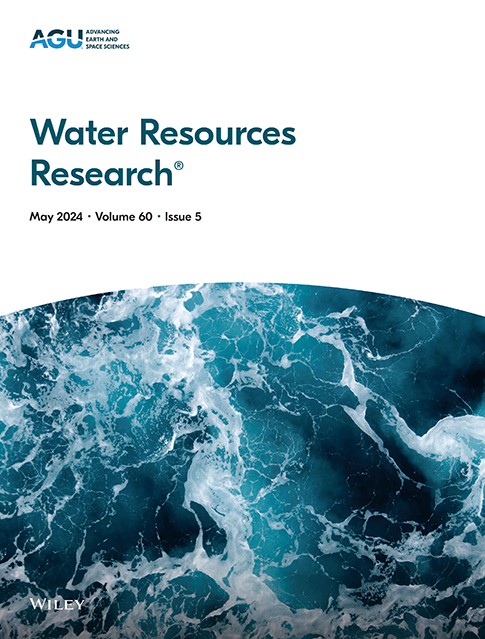Probabilistic Trade-Offs Analysis for Sustainable and Equitable Management of Climate-Induced Water Risks
IF 4.6
1区 地球科学
Q2 ENVIRONMENTAL SCIENCES
引用次数: 0
Abstract
Pressures on water resources are fueling conflicts between sectors. This trend will likely worsen under future climate-induced water stress, jeopardizing food, energy and human water security in most arid and semi-arid regions. Probabilistic analysis using stochastic optimization modeling can characterize multi-sector vulnerabilities and risks associated with future water stress. This study identifies the probabilistic trade-offs between agricultural, urban and energy sectors in the Ebro Basin (Spain). Two intervention policies have been examined and compared: (a) agricultural priority, and (b) energy priority, for two planning horizons 2040–2070 and 2070–2100. Results show that the human water security goal is achieved under both intervention policies. However, the achievement of the food and energy security goals depends on the policy objectives and on the spatial location of irrigation schemes and hydropower plants, which result in different stream flows across the basin. The policy choice results in substantially different benefit gains and losses by sector and therefore by location. None of the sectoral production priority policy provides an equitable sharing of benefits among all sectors and locations under climate change, which is an important issue, because the success or failure of policy interventions would depend on the distribution of the gains and losses of benefits across the basin. Policy uptake by stakeholders would depend on reaching win-win outcomes where losers are compensated, while delivering acceptable levels of food, energy and human water security in large river basins. Information on the probabilistic trade-offs contributes to the design of water management strategies capable of addressing the multi-sector vulnerability.求助全文
约1分钟内获得全文
求助全文
来源期刊

Water Resources Research
环境科学-湖沼学
CiteScore
8.80
自引率
13.00%
发文量
599
审稿时长
3.5 months
期刊介绍:
Water Resources Research (WRR) is an interdisciplinary journal that focuses on hydrology and water resources. It publishes original research in the natural and social sciences of water. It emphasizes the role of water in the Earth system, including physical, chemical, biological, and ecological processes in water resources research and management, including social, policy, and public health implications. It encompasses observational, experimental, theoretical, analytical, numerical, and data-driven approaches that advance the science of water and its management. Submissions are evaluated for their novelty, accuracy, significance, and broader implications of the findings.
 求助内容:
求助内容: 应助结果提醒方式:
应助结果提醒方式:


